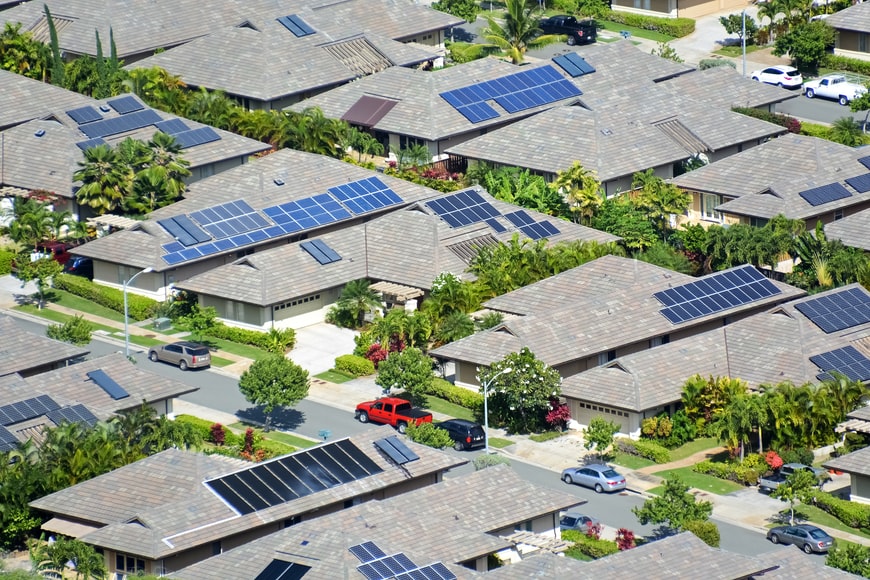Various natural resources, such as petroleum and coal, were created millions of years back. However, other resources, like sunlight, have been available even before Earth came into being. All living beings are dependent on these energy resources.
These resources are called natural resources, and they are extremely crucial for life on Earth. Natural resources are categorized into non-renewable resources and renewable resources.
Renewable Resources of Energy
The resources that do not get depleted even after being utilized continuously are called renewable resources. Examples of such renewable resources of energy are wind, the sun, and tidal energy.
Non-Renewable Resources of Energy
The energy resources that cannot be replaced immediately once exhausted are termed as non-renewable resources of energy. Examples of non-renewable resources are fossil fuels, such as petroleum, coal, natural gas, and rare minerals that generally originate in meteorites. However, did you know about the disadvantages of non-renewable energy?
Non-renewable resources of energy have both advantages and disadvantages.
online pharmacy purchase xenical online best drugstore for you
Let us take a more detailed look at this form of energy.
More on Non-Renewable Resources of Energy
One interesting point to note about non-renewable resources is that all fossil fuels are non-renewable; however, not all non-renewable energy sources can be termed fossil fuels. Coal, crude oil, and natural gas are fossil fuels as they were created from the buried and hidden remains of animals and plants that existed millions of years back.
Fossil fuels provide a method to sustain our present infrastructure as we develop new ways to create clean energy. Wind, solar, geothermal, and water resources are possible due to non-renewables in the manufacturing process.
The solid uranium ore is mined and transformed into a fuel that is used in nuclear power plants. Though uranium is not a fossil fuel, it is categorized as a non-renewable fuel.
Following are the non-renewable energy sources:
- Natural Gas
- Nuclear Energy
- Biomass Energy
- Coal
- Petroleum
Even though our global society is pushing for renewable energy via accords such as the Paris agreement, non-renewable sources of power cannot be done away with altogether. As modern technologies enable us to be more competitive with fossil fuels, an evaluation of the pros and cons of non-renewable sources gives more information on this important energy resource.
Advantages of Non-Renewable Energy
We can create non-renewable supplies almost anywhere
To control the energy from renewable sources, regions that can support it have to be identified globally. This applies to wind, solar, and also geothermal resources for specific environmental regions.
Non-renewable resources create more power post the refinement process
When we develop non-renewable sources to access the available energy potential, we can create more power from natural gas, crude oil, and other fuels than what is offered when they are available in their raw form.
Various exclusive products are generated from non-renewable sources of energy
Hydrocarbons present in fossil fuels can be refined to make various products that can be used daily. Various items, such as soaps, plastics, and several other essential items for modern life, are available at reasonable prices due to this resource. Also, various safety products that have been created over the last so many years are directly linked or associated with enhancements in the refinement of hydrocarbons.
The universal economy is reliant on the availability of non-renewable resources
All over the world, the governments offer support of approximately $5 trillion in expenditures directly associated with the non-renewables segment. This figure indicates close to 7% of the universal GDP every year. Additionally, organisations that generate fossil fuels generate considerable employment openings that offer significant wages to the local economies. Though industries such as wind or solar energy can create similar numbers, it is not always available in the same quantity.
Non-renewable energy offers a greater energy output
We gain 12 times more power when refining crude oil into usable products than we would consume the resource directly. Coal energy offers about eight times more energy during consumption after refinement, including when filtration to restrict the number of particles that leak into the atmosphere.
Disadvantages of non-renewable Energy
Non-renewable resources energies can cause high levels of pollution
If the subsidized figures from the non-renewable energy industries are considered, the fossil fuels we consume signify 28% of the global greenhouse gas emissions given out each year.
There is a possibility that fossil fuels may not be present forever
Though the estimates for fossil fuel accessibility have been varying consistently over the past 30 years, there is always a probability that non-renewable resources will become extinct in the future.
Products that are non-renewable cause political conflicts
Nations go to war often over access to required resources. Our economy’s dependence on non-renewable energy is the foundation for possible future conflicts.
online pharmacy purchase diflucan online best drugstore for you
Fossil fuel burning is hazardous to our health
Coal fuel combustion emits particles into the atmosphere except if there is a filter to capture them. These small particles, which measure only in microns in diameter, can cause heart attacks, cancer, and strokes once exposed to them.
Animals and plants face the same problems that humans do with non-renewable sources of energy.
Although some plants flourish in environments with substantial carbon dioxide levels, most fauna and flora need the same healthy processes that humans do to sustain good health.
online pharmacy purchase augmentin online best drugstore for you
The health of all flora and fauna is put at risk of being exposed to fossil fuels in unnatural ways.
Conclusion
Though we are conscious of the possible dangers we are at risk of while consuming non-renewable energy, we still require fossil fuels to sustain our modern lifestyle. Let’s take steps to control and manage our exposure to the hazardous elements of oil, natural gas, and coal.
The industries of non-renewable sources can operate more efficiently. The disadvantages and advantages of non-renewable energy will most certainly keep pushing us towards maintainable ways to generate the power we require.


